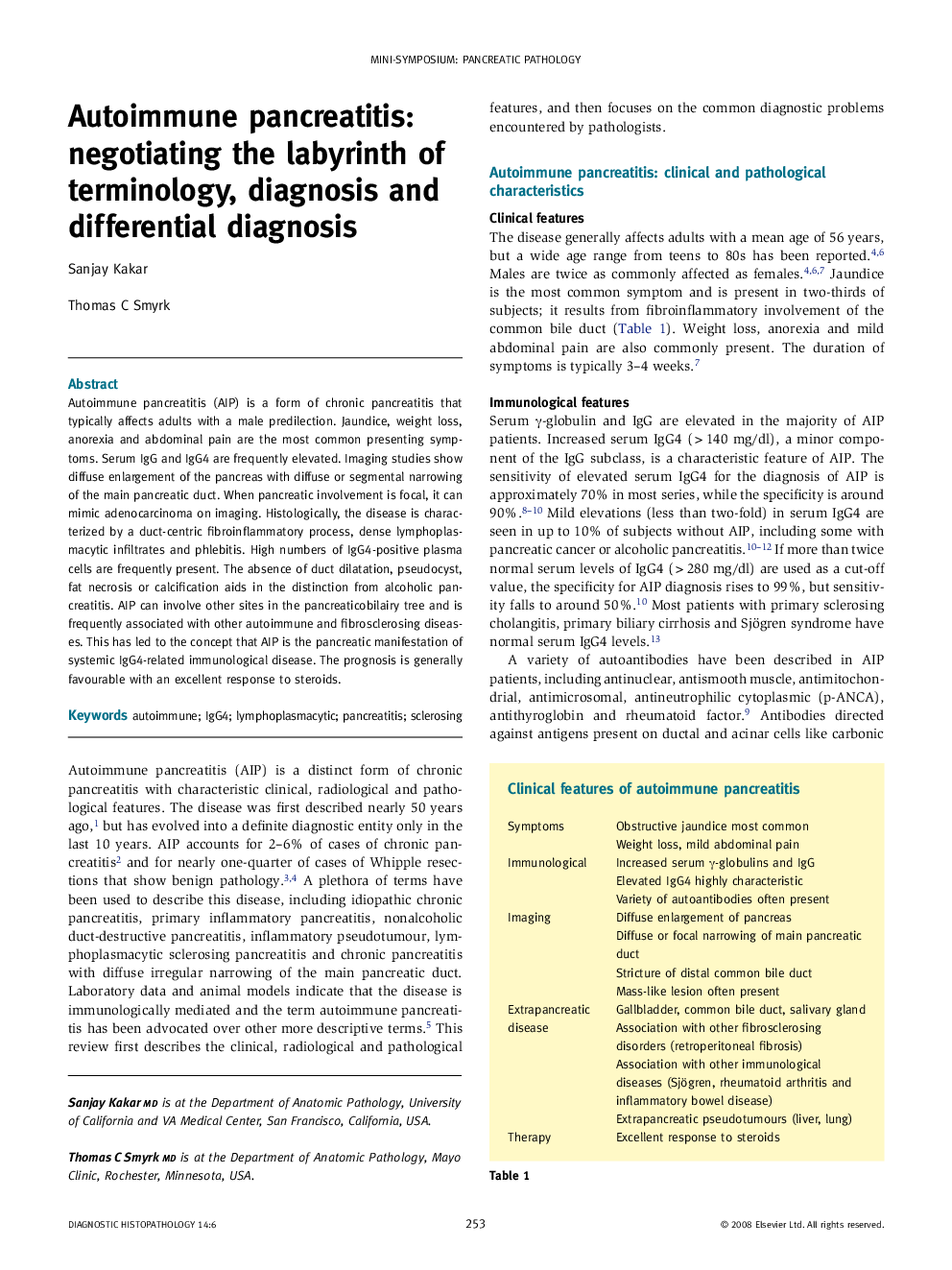| Article ID | Journal | Published Year | Pages | File Type |
|---|---|---|---|---|
| 4131417 | Diagnostic Histopathology | 2008 | 7 Pages |
Abstract
Autoimmune pancreatitis (AIP) is a form of chronic pancreatitis that typically affects adults with a male predilection. Jaundice, weight loss, anorexia and abdominal pain are the most common presenting symptoms. Serum IgG and IgG4 are frequently elevated. Imaging studies show diffuse enlargement of the pancreas with diffuse or segmental narrowing of the main pancreatic duct. When pancreatic involvement is focal, it can mimic adenocarcinoma on imaging. Histologically, the disease is characterized by a duct-centric fibroinflammatory process, dense lymphoplasmacytic infiltrates and phlebitis. High numbers of IgG4-positive plasma cells are frequently present. The absence of duct dilatation, pseudocyst, fat necrosis or calcification aids in the distinction from alcoholic pancreatitis. AIP can involve other sites in the pancreaticobilairy tree and is frequently associated with other autoimmune and fibrosclerosing diseases. This has led to the concept that AIP is the pancreatic manifestation of systemic IgG4-related immunological disease. The prognosis is generally favourable with an excellent response to steroids.
Related Topics
Health Sciences
Medicine and Dentistry
Pathology and Medical Technology
Authors
Sanjay Kakar, Thomas C. Smyrk,
